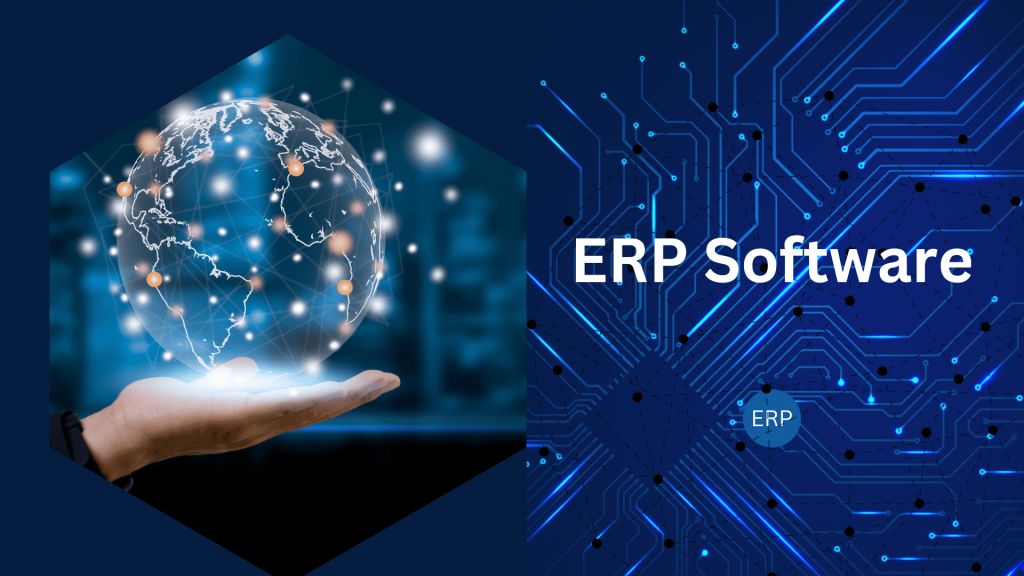Implementing an Enterprise Resource Planning (ERP) system in your business can offer a multitude of benefits that can significantly enhance your operational efficiency, decision-making processes, and overall growth. In this blog, we will delve into the various advantages that come with adopting an ERP system in Dubai.

Streamlined Processes and Efficiency
ERP systems integrate and automate various business processes across departments. This leads to improved workflow efficiency by eliminating manual data entry, reducing errors, and minimizing redundant tasks. With real-time data synchronization, employees can access accurate information, leading to quicker decision-making and faster response times to customer inquiries.
Enhanced Data Visibility and Reporting
ERP systems consolidate data from different departments into a central database, providing a comprehensive view of your business operations. This visibility enables better tracking of key performance indicators (KPIs) and helps identify trends, bottlenecks, and areas for improvement. Advanced reporting tools allow for customized reports and dashboards, aiding in informed decision-making.
Improved Customer Relationship Management (CRM)
ERP systems often include CRM modules that help businesses manage customer interactions and relationships. This results in better customer service, as staff can access customer data, purchase history, and preferences, leading to personalized experiences. This, in turn, enhances customer satisfaction and loyalty.
Effective Inventory Management
ERP systems optimize inventory management by offering real-time insights into stock levels, order fulfillment, and demand patterns. This prevents overstocking or stockouts, reduces carrying costs, and improves supply chain management. As a result, businesses can maintain the right inventory levels and avoid unnecessary costs.
Data Accuracy and Decision-Making
Manual data entry is prone to errors, which can have significant repercussions. ERP systems ensure data accuracy by reducing manual intervention. Accurate data facilitates better decision-making, as leaders can rely on reliable information to strategize and plan effectively.
Cost Savings
While implementing an ERP system might involve an upfront investment, the long-term benefits often outweigh the costs. ERP systems lead to cost savings by optimizing processes, reducing inefficiencies, and minimizing operational errors. Additionally, streamlined operations translate to reduced labor costs and improved resource allocation.
Regulatory Compliance and Security
Many industries have stringent regulatory requirements that businesses must adhere to. ERP systems often come equipped with features that help meet compliance standards. Moreover, data security is enhanced through role-based access controls, data encryption, and secure user authentication, safeguarding sensitive information.
Scalability and Growth
As your business expands, an ERP system can adapt to accommodate increased demands. Whether you open new branches, introduce new products, or serve a larger customer base, the scalable nature of ERP systems ensures that your operations remain efficient and organized.
Streamlined Communication
Communication barriers between departments can hinder productivity. ERP systems promote better collaboration and communication by providing a centralized platform for sharing information. This fosters cross-functional teamwork and a unified approach to achieving organizational goals.
Competitive Advantage
Businesses that implement ERP systems gain a competitive edge by responding faster to market changes, making informed decisions, and delivering superior customer experiences. The streamlined operations and improved efficiency can set you apart from competitors who are still relying on traditional methods.
Faster Order Fulfillment
ERP systems streamline order processing and fulfillment by automating tasks such as order entry, invoicing, and shipping. This reduces the time it takes to fulfill customer orders, leading to quicker deliveries and improved customer satisfaction.
Supplier Relationship Management
Managing relationships with suppliers is crucial for a smooth supply chain. ERP systems enable better supplier management by providing visibility into supplier performance, lead times, and pricing. This enhances negotiation capabilities and helps you build stronger supplier partnerships.
Risk Management
ERP systems can assist in identifying and mitigating potential risks. By providing real-time data on various aspects of your business, such as inventory levels, demand forecasts, and production schedules, you can proactively address challenges and minimize disruptions.
Employee Productivity and Engagement
ERP systems simplify tasks for employees by reducing manual data entry and automating routine processes. This not only increases productivity but also allows employees to focus on value-added tasks that contribute to the growth of the business. Improved efficiency can also boost employee morale and engagement.
In conclusion, the benefits of implementing an ERP system in your business are far-reaching and impactful. From increased efficiency and data accuracy to enhanced customer relationships and cost savings, ERP systems play a pivotal role in driving growth and success in the modern business landscape. If you’re looking to optimize your operations and stay ahead of the competition, considering an ERP system could be a game-changing decision for your business.